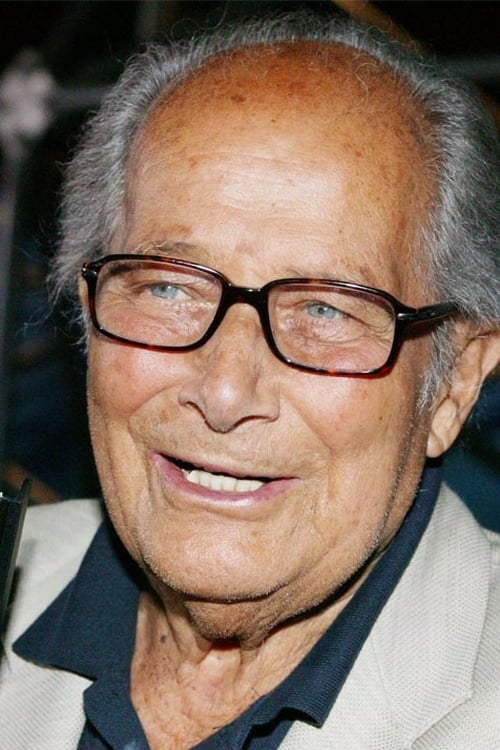
Gillo Pontecorvo
Рождение : 1919-11-19, Pisa, Italy
Смерть : 2006-10-12
История
Gillo Pontecorvo, born November 19, 1919 in Pisa and died October 12, 2006 in Rome, is an Italian filmmaker. Of Italian Jewish origin, Gillou Pontecorvo is the brother of Bruno Pontecorvo, a nuclear physicist working for the USSR, and Guido Pontecorvo, an Italian-British geneticist, as well as the grandson of the Jewish industrialist Pellegrino Pontecorvo. He has three sons: Marco (cinematographer and director), Simone (painter) and Ludovico (physicist).
A chemist by training, he quickly turned to journalism and became correspondent in Paris for several Italian publications. In 1941, he joined the Italian Communist Party (PCI), and participated in anti-fascist activities in northern Italy. After the Soviet repression of the Budapest uprising in 1956, he broke with the PCI, while continuing to claim Marxism. He started in cinema after the Second World War as assistant to Yves Allégret1 and Mario Monicelli in particular. From 1953, he produced his first documentary essays (Giovanna, MM, 1956). In 1956, he contributed to an episode of Die Windrose, supervised by Alberto Cavalcanti.
The following year, he directed his first feature film, A Called Squarcio (La grande strada azzurra, produced by Maleno Malenotti, based on a novel by Franco Solinas). Then he describes the concentration camp world in the film Kapò (1960), the story of a Jewish woman who becomes an auxiliary of the Nazis. The film was nominated for an Oscar for best foreign language film in 1961. It gave rise to a famous controversy over the "Kapò tracking shot", which Jacques Rivette had deemed unworthy in an article in Cahiers du cinéma entitled "De l' abjection.” In 1966, he directed his most important film, The Battle of Algiers (La Battaglia di Algeri), a reconstruction of the police action of the French army during the Battle of Algiers which was a fundamental episode of the war. from Algeria. This film was awarded the Golden Lion at the Venice Festival, but remained banned in France for a long time and its exploitation caused a lot of uproar linked to the scenes of torture committed by the French army. In Queimada (1969), dominated by the interpretation of Marlon Brando, he once again attacks colonialism, with an evocation of the Haitian revolution at the beginning of the 19th century. Faced with the commercial failure of Queimada, Pontecorvo stopped making films. He still directed a secondary film, Operation Ogre (Ogro, 1979), on the assassination of Luis Carrero Blanco by ETA during Francoism, and collaborated on the film L'addio a Enrico Berlinguer (1984).
In 1992, he was appointed director of the Venice Film Festival. In 1993, during the 50th edition of the Mostra, Pontecorvo presented Steven Spielberg with an honorary Golden Lion, at the time of the release of Schindler's List. He died on October 12, 2006, at the age of 86, in Rome, Italy.
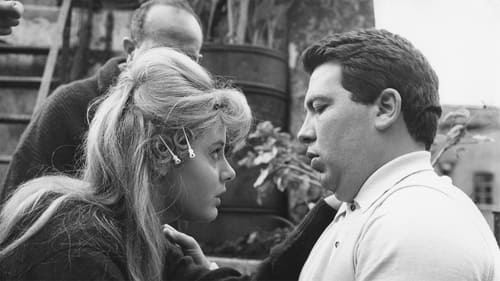
Self
A documentary on the director’s career, featuring interviews with friends, collaborators, and filmmakers.

Self
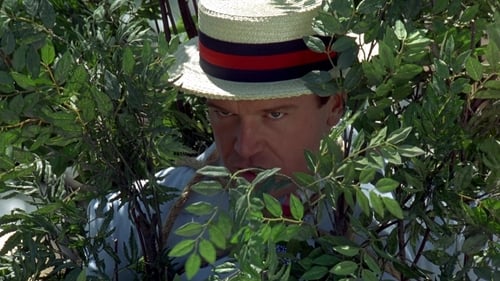
Talk show guest
Болван — это фамилия. Мистер и миссис Болваны с двумя детьми жили в своем домике, и лишь одно омрачало их радостное существование — кто-то похищал по ночам их мусор. Целую ночь просидел отважный мистер Болван в засаде и выследил мусорную машину. Стал шпионить за ней на роликовых коньках.
След привел его на помойку, где некие чины американской армии, обиженные недостаточным вниманием страны к их заслугам, продавали оружие бандитам, революционерам и террористам со всего мира. Военные принимают его за агента ФБР и начинают за ним охоту.
Дети, обнаружив исчезновение папы, обратились в полицию, оставив маме записку. Мама решила, что детей взяли в заложники полицейские.

Director
Gillo Pontecorvo, who directed the insurrectionary classic The Battle of Algiers in 1966, returns to the city of Algiers to view the progress Algeria has made - for better or worse - since the departure of the French colonialist forces thirty years earlier.

Himself
Gillo Pontecorvo, who directed the insurrectionary classic The Battle of Algiers in 1966, returns to the city of Algiers to view the progress Algeria has made - for better or worse - since the departure of the French colonialist forces thirty years earlier.

Self

Director
Promotional omnibus film, made for the 1990 FIFA World Cup in Italy, featuring portraits of 12 Italian cities.

Director
A film of Enrico Berlinguer's funeral in Rome, briefly tracing his career as leader of the Italian Communist Party.
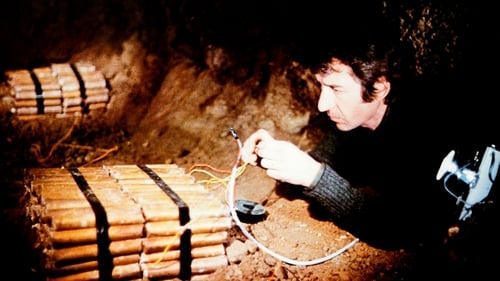
Screenplay
Испания, 1973 год. Диктатор Франсиско Франко правил страной с 1939 года железным кулаком, но сейчас он очень стар и болен. Будущее ослабленного режима находится под угрозой. Адмирал Карреро Бланко - его естественный преемник. Баскская террористическая банда ETA решает, что он должен умереть, чтобы предотвратить продолжение диктатуры.

Director
Испания, 1973 год. Диктатор Франсиско Франко правил страной с 1939 года железным кулаком, но сейчас он очень стар и болен. Будущее ослабленного режима находится под угрозой. Адмирал Карреро Бланко - его естественный преемник. Баскская террористическая банда ETA решает, что он должен умереть, чтобы предотвратить продолжение диктатуры.
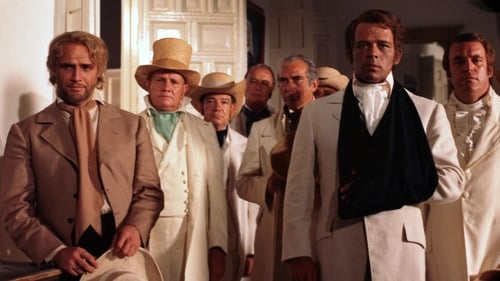
Director
Профессиональный наемник сэр Уильям Уолкер устраивает восстание рабов на одном из Карибских островов, чтобы помочь провернуть сделку по торговле сахаром с Британией. Через несколько лет он вынужден вернуться на тот же остров, чтобы разобраться с набравшими силы бывшими компаньонами.
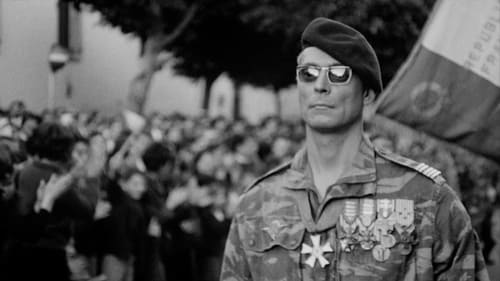
Original Music Composer
В центре фильма — события алжирской борьбы за независимость в промежутке между 1954 и 1960 гг., пропущенные через воспоминания находящегося под арестом главного героя.

Writer
В центре фильма — события алжирской борьбы за независимость в промежутке между 1954 и 1960 гг., пропущенные через воспоминания находящегося под арестом главного героя.

Director
В центре фильма — события алжирской борьбы за независимость в промежутке между 1954 и 1960 гг., пропущенные через воспоминания находящегося под арестом главного героя.

Screenplay
Основанная на реальных фактах, история нравственного падения еврейской девушки, попавшей в невообразимые условия гитлеровской фабрики смерти Освенцим и превратившейся в капо (надсмотрщицу). Чтобы не голодать, жить без постоянного страха смерти, не опасаясь изнурительных каторжных работ, нужно только одно — быть жестокой. Фильм был номинирован на премию Оскар как лучший фильм на иностранном языке.

Director
Основанная на реальных фактах, история нравственного падения еврейской девушки, попавшей в невообразимые условия гитлеровской фабрики смерти Освенцим и превратившейся в капо (надсмотрщицу). Чтобы не голодать, жить без постоянного страха смерти, не опасаясь изнурительных каторжных работ, нужно только одно — быть жестокой. Фильм был номинирован на премию Оскар как лучший фильм на иностранном языке.
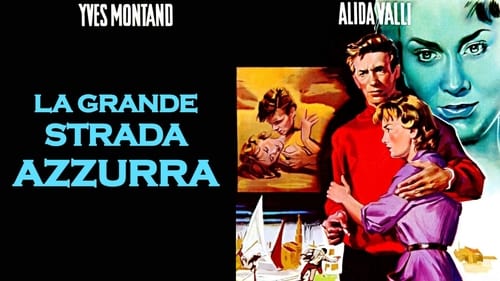
Screenplay
Рыбак Скварцио живет со своей семьей на небольшом острове у далматинского побережья Италии. Как и его односельчане, Скварцио борется с тяжелыми условиями жизни, нехваткой рыбы в близлежащих водах и эксплуатацией со стороны местного оптовика. Но если другие рыбаки ловят рыбу сетями, он, добывая тол из снарядов, оставшихся со времен Второй мировой войны, глушит рыбу в открытом море, вызывая крайнее неодобрение у односельчан-рыбаков. Однажды он попытался сделать это прямо в прибрежных водах, но на этот раз море предъявляет ему огромный счет...

(uncredited)
Рыбак Скварцио живет со своей семьей на небольшом острове у далматинского побережья Италии. Как и его односельчане, Скварцио борется с тяжелыми условиями жизни, нехваткой рыбы в близлежащих водах и эксплуатацией со стороны местного оптовика. Но если другие рыбаки ловят рыбу сетями, он, добывая тол из снарядов, оставшихся со времен Второй мировой войны, глушит рыбу в открытом море, вызывая крайнее неодобрение у односельчан-рыбаков. Однажды он попытался сделать это прямо в прибрежных водах, но на этот раз море предъявляет ему огромный счет...

Director
Рыбак Скварцио живет со своей семьей на небольшом острове у далматинского побережья Италии. Как и его односельчане, Скварцио борется с тяжелыми условиями жизни, нехваткой рыбы в близлежащих водах и эксплуатацией со стороны местного оптовика. Но если другие рыбаки ловят рыбу сетями, он, добывая тол из снарядов, оставшихся со времен Второй мировой войны, глушит рыбу в открытом море, вызывая крайнее неодобрение у односельчан-рыбаков. Однажды он попытался сделать это прямо в прибрежных водах, но на этот раз море предъявляет ему огромный счет...

Director
В 1954-1956 гг. по просьбе Всемирной демократической федерации женщин было снято пять короткометражек для художественно-документального фильма «Роза ветров», в которых были показаны истории из жизни женщин в Бразилии, Китае, Франции, Италии и Советском Союзе. В сборник вошли новеллы: «УТРО КАК ДРУГИЕ» (Um matin comme les autres, Франция, 1956, реж. Янник Беллон); «ДЖОВАННА» (Giovanna, Италия, 1956, реж. Джилло Понтекорво); «АНА» (Ana, Бразилия, 1955, реж. Алекс Виани); «ЧЭНЬ ЛИН» (Chen Ling / 陳玲, Китай, 1956, реж. У Ю-ин); «НАДЕЖДА» (СССР, 1954, реж. Сергей Герасимов и Альберто Кавальканти). Художественным руководителем проекта выступил известный голландский режиссёр-документалист Йорис Ивенс.
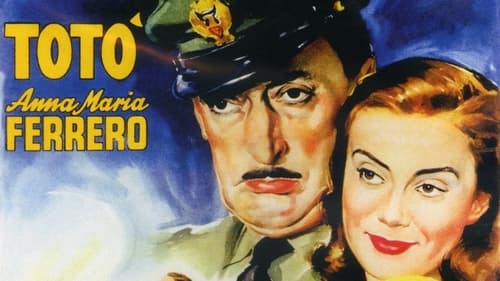
First Assistant Director
During a police raid at Villa Borghese, the agent, a widower named Antonio Caccavallo, stays to get better acquainted with the young Carolina.

Writer
This short is set in the early 1950s in a small textile factory in central Italy (Prato). Giovanna and her fellow female workers decide to enact a protest against the direction of the factory's dismissal plan, by occupying the factory and continuing to work until the proprietor cancels the dismissals. None of these women can really afford to lose their jobs, as it is the only income in the family. All workers receive moral and material support from their families, apart from Giovanna, who bravely endures her husband's disapproval. Almost all the women hold out for thirty-five days in spite of the proprietor's attempts to break their resistance. At first he blocks the road to the factory, then he cuts off electric power to increase their isolation; finally, he tries to convince them to accept the dismissal of at least a smaller number of them. But the women overcome these obstacles, determined to resist...

Director
This short is set in the early 1950s in a small textile factory in central Italy (Prato). Giovanna and her fellow female workers decide to enact a protest against the direction of the factory's dismissal plan, by occupying the factory and continuing to work until the proprietor cancels the dismissals. None of these women can really afford to lose their jobs, as it is the only income in the family. All workers receive moral and material support from their families, apart from Giovanna, who bravely endures her husband's disapproval. Almost all the women hold out for thirty-five days in spite of the proprietor's attempts to break their resistance. At first he blocks the road to the factory, then he cuts off electric power to increase their isolation; finally, he tries to convince them to accept the dismissal of at least a smaller number of them. But the women overcome these obstacles, determined to resist...
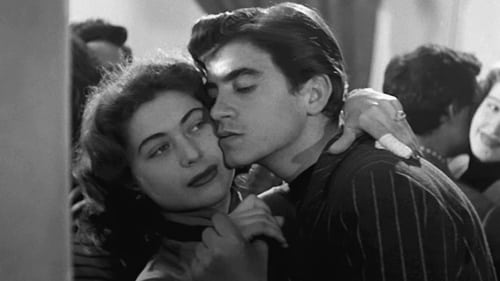
First Assistant Director
Пять разворачивающихся в Риме историй любви от классиков итальянского кино.
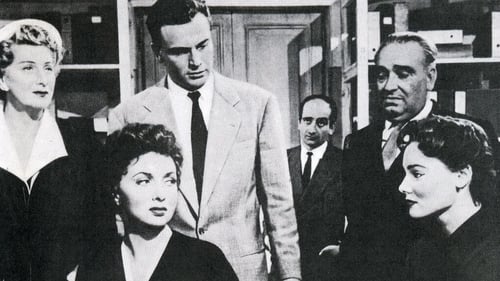
First Assistant Director
A group of "respectable" people are all partly responsible for the suicide of a servant girl. They are pounced upon by a wily blackmailer, who knows that these people will pay dearly rather than inform on themselves or others.
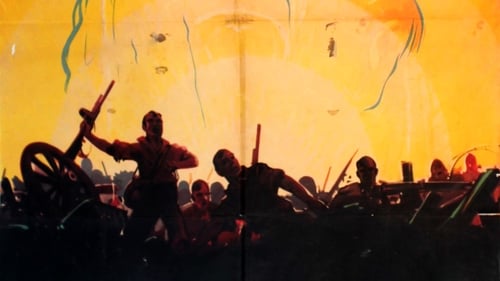
Pietro
A neorealist tribute to the Italian resistance fighters of World War II.

